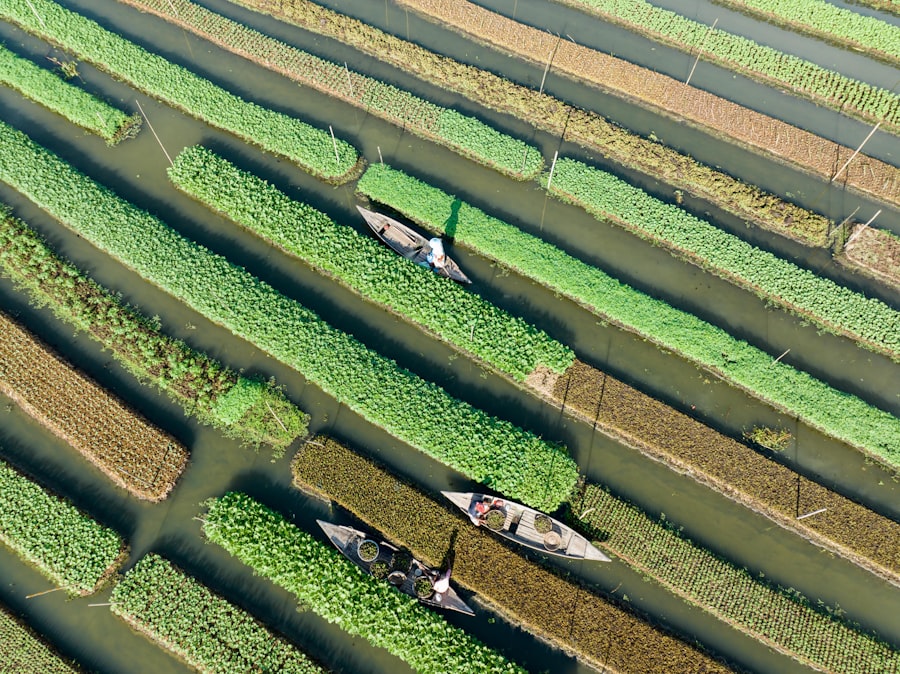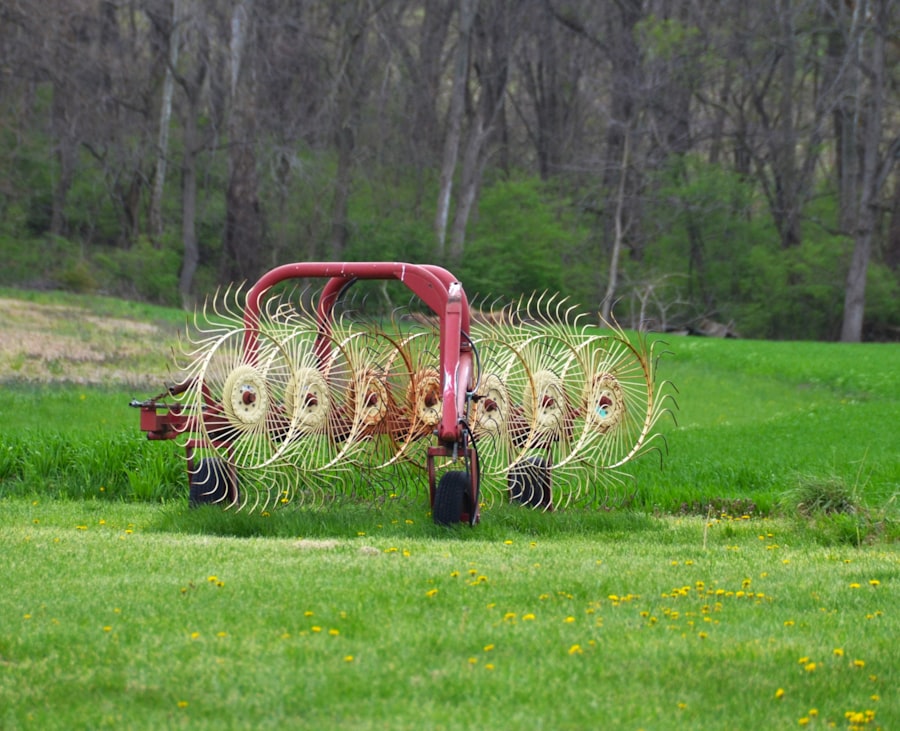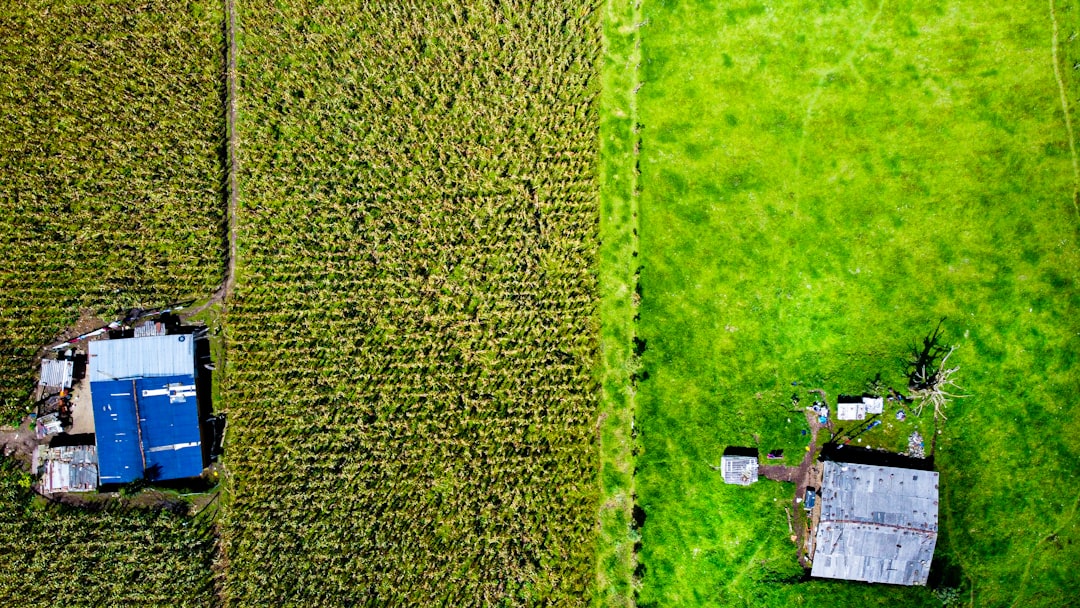Modern farming techniques have emerged as a beacon of hope for addressing the growing global food demand. With the world’s population projected to reach nearly 10 billion by 2050, the agricultural sector faces unprecedented challenges. Innovations such as precision agriculture, genetically modified organisms (GMOs), and vertical farming promise to enhance productivity and ensure food security.
These advancements are designed to maximize yields while minimizing resource use, presenting a compelling case for the future of agriculture. However, the promise of these modern techniques is not without its complexities. While they offer potential solutions to food scarcity, they also raise questions about sustainability and long-term viability.
The reliance on technology and chemical inputs can lead to a cycle of dependency that may not be sustainable in the long run. As farmers adopt these methods, they must also consider the broader implications for ecosystems, local communities, and future generations.
Key Takeaways
- Modern farming techniques promise increased productivity and efficiency in agriculture.
- Technology plays a crucial role in improving farming practices, from precision farming to automated machinery.
- Industrialization has led to the intensification of farming, resulting in environmental degradation and loss of biodiversity.
- The pursuit of increased efficiency in modern farming often comes at the cost of environmental sustainability.
- Intensive farming practices can have negative health implications for both farm workers and consumers.
The Role of Technology in Agriculture
Technology plays a pivotal role in transforming agricultural practices, enabling farmers to optimize their operations like never before. From drones that monitor crop health to sensors that provide real-time data on soil conditions, technological advancements have revolutionized how farmers approach their work. These tools allow for more precise application of water, fertilizers, and pesticides, which can lead to increased yields and reduced waste.
Moreover, technology facilitates better decision-making through data analytics and machine learning. Farmers can now analyze vast amounts of information to predict weather patterns, assess market trends, and manage resources more effectively. This data-driven approach not only enhances productivity but also empowers farmers to make informed choices that can lead to greater profitability.
The Impact of Industrialization on Farming

The industrialization of agriculture has fundamentally altered the landscape of farming practices. This shift towards large-scale operations has led to increased efficiency and productivity, allowing for the mass production of food. However, it has also resulted in significant changes to traditional farming methods and rural communities.
Small family farms have struggled to compete with industrial farms that benefit from economies of scale, leading to a decline in the number of smallholders. Furthermore, industrialization has contributed to a homogenization of crops and farming practices. The focus on high-yield varieties often comes at the expense of biodiversity, as farmers are encouraged to plant a limited number of crops that are deemed most profitable.
This lack of diversity can make agricultural systems more vulnerable to pests and diseases, ultimately threatening food security. As industrial farming continues to dominate, it is crucial to consider the long-term implications for both the environment and rural livelihoods.
The Illusion of Increased Efficiency
| Metrics | Data |
|---|---|
| Productivity | 10% increase |
| Time spent on tasks | 20% decrease |
| Quality of work | No significant change |
| Employee satisfaction | 5% decrease |
While modern farming techniques tout increased efficiency as a primary benefit, this notion can often be misleading. The emphasis on maximizing output has led to practices that prioritize short-term gains over long-term sustainability. For instance, the overuse of chemical fertilizers and pesticides may boost yields initially but can degrade soil health over time, leading to diminished productivity in the future.
Additionally, the focus on efficiency can create a false sense of security regarding food production. Farmers may become reliant on high-input systems that are not resilient to climate change or other environmental stresses. This reliance can result in a precarious situation where any disruption—be it economic downturns or extreme weather events—can have devastating consequences for food supply chains.
Thus, while efficiency is an important goal, it must be balanced with considerations for sustainability and resilience.
The Environmental Cost of Modern Farming
The environmental impact of modern farming practices cannot be overlooked. Intensive agricultural methods often lead to soil degradation, water depletion, and loss of biodiversity. The heavy use of chemical inputs contributes to pollution in waterways and can harm local ecosystems.
As farmers strive for higher yields, they may inadvertently compromise the health of the land they depend on. Moreover, modern farming is a significant contributor to greenhouse gas emissions. The mechanization of agriculture and reliance on fossil fuels for transportation and production processes exacerbate climate change issues.
As awareness grows about the environmental costs associated with industrial agriculture, there is an increasing call for practices that prioritize ecological health alongside productivity.
The Health Implications of Intensive Farming Practices

Intensive farming practices raise serious concerns regarding public health. The widespread use of antibiotics in livestock production has been linked to the rise of antibiotic-resistant bacteria, posing a significant threat to human health. Additionally, the application of chemical pesticides and fertilizers can lead to residues on food products, raising questions about food safety and long-term health effects.
Furthermore, the focus on monoculture—the cultivation of a single crop over large areas—can diminish nutritional diversity in diets. As farmers prioritize high-yield crops that are often less nutritious, consumers may find themselves with limited access to a variety of healthy foods. This shift not only impacts individual health but also has broader implications for public health systems as diet-related diseases become more prevalent.
The Economic Realities of Modern Agriculture
The economic landscape of modern agriculture is complex and often challenging for farmers. While large-scale operations may benefit from lower production costs and higher profit margins, smallholder farmers frequently struggle to compete in a market dominated by industrial agriculture.
Additionally, fluctuations in global commodity prices can create uncertainty for farmers who rely on cash crops for their livelihoods. Economic pressures may force them into cycles of debt as they invest in expensive inputs or technology without guaranteed returns. As such, it is essential to consider not only the financial viability of modern farming practices but also their social implications for rural economies.
The Importance of Sustainable Farming Practices
Sustainable farming practices offer a pathway toward addressing many of the challenges posed by modern agriculture. By prioritizing ecological health and social equity, these methods aim to create resilient food systems that can withstand environmental pressures while providing nutritious food for communities. Techniques such as crop rotation, agroforestry, and organic farming promote biodiversity and soil health while reducing reliance on chemical inputs.
Moreover, sustainable practices can enhance the economic viability of farms by diversifying income streams and reducing input costs over time. Farmers who adopt sustainable methods often find themselves better equipped to adapt to changing market conditions and climate variability. As consumers increasingly demand transparency and sustainability in their food sources, there is a growing incentive for farmers to embrace practices that align with these values.
The Need for a Shift in Agricultural Policies
To foster a more sustainable agricultural system, a shift in agricultural policies is essential. Current policies often favor large-scale industrial operations at the expense of smallholder farmers and sustainable practices. By reallocating resources and support towards regenerative agriculture initiatives, governments can help create an environment where diverse farming methods thrive.
Additionally, policies that incentivize sustainable practices—such as subsidies for organic farming or funding for research into agroecological methods—can encourage farmers to transition away from harmful practices. Collaborative efforts between governments, NGOs, and agricultural organizations are crucial in developing frameworks that support sustainable agriculture while ensuring food security for future generations.
The Role of Consumers in Supporting Sustainable Agriculture
Consumers play a vital role in shaping the future of agriculture through their purchasing choices. By opting for sustainably produced foods—such as those labeled organic or locally sourced—consumers can drive demand for practices that prioritize environmental health and social equity. This shift in consumer behavior can encourage farmers to adopt more sustainable methods as they respond to market signals.
Moreover, consumer education is key in fostering awareness about the impacts of agricultural practices on health and the environment. By understanding the benefits of supporting sustainable agriculture, consumers can make informed choices that align with their values. This collective action can create a ripple effect throughout the food system, promoting practices that benefit both people and the planet.
The Future of Farming: Balancing Efficiency and Sustainability
The future of farming lies in finding a balance between efficiency and sustainability. As global food demands continue to rise, it is imperative that agricultural practices evolve to meet these challenges without compromising ecological integrity or public health. Embracing innovative technologies alongside sustainable methods can pave the way for resilient food systems that support both productivity and environmental stewardship.
Ultimately, achieving this balance will require collaboration among farmers, policymakers, consumers, and researchers. By working together towards common goals—such as enhancing food security while protecting natural resources—stakeholders can create an agricultural landscape that is both efficient and sustainable. As society navigates the complexities of modern agriculture, it is essential to prioritize practices that ensure a healthy planet for generations to come.
In recent discussions about the efficiency illusion in farming, it’s crucial to consider the broader implications of agricultural practices on economic growth and sustainability. An insightful article on this topic can be found on How Wealth Grows, which delves into the intricate balance between maximizing output and maintaining ecological health. The piece highlights how traditional metrics of efficiency often overlook the long-term environmental costs, leading to a misleading perception of productivity. For a deeper understanding of these dynamics, you can read the full article by visiting How Wealth Grows. This resource provides valuable perspectives on how sustainable practices can lead to genuine wealth growth in the agricultural sector.
WATCH THIS! 🫣Why Wall Street Is Buying Up America’s Farmland (And Why It Should Terrify You)
FAQs
What is the efficiency illusion in farming?
The efficiency illusion in farming refers to the belief that modern agricultural practices, such as the use of chemical fertilizers and pesticides, genetically modified crops, and large-scale monoculture, are inherently more efficient and productive than traditional or organic farming methods.
What are the potential drawbacks of the efficiency illusion in farming?
The potential drawbacks of the efficiency illusion in farming include environmental degradation, loss of biodiversity, soil erosion, water pollution, and negative impacts on human health. Additionally, the focus on short-term productivity gains may lead to long-term sustainability challenges.
How does the efficiency illusion in farming impact small-scale farmers?
The efficiency illusion in farming can disproportionately impact small-scale farmers by promoting a system that favors large-scale industrial agriculture and agribusiness, making it difficult for small-scale farmers to compete in the market. This can lead to the displacement of small-scale farmers and the consolidation of land and resources in the hands of a few large corporations.
What are some alternative approaches to farming that challenge the efficiency illusion?
Alternative approaches to farming that challenge the efficiency illusion include agroecology, permaculture, regenerative agriculture, and organic farming. These approaches prioritize ecological sustainability, biodiversity, and the well-being of farmers and rural communities, while also aiming to produce healthy and nutritious food for consumers.
